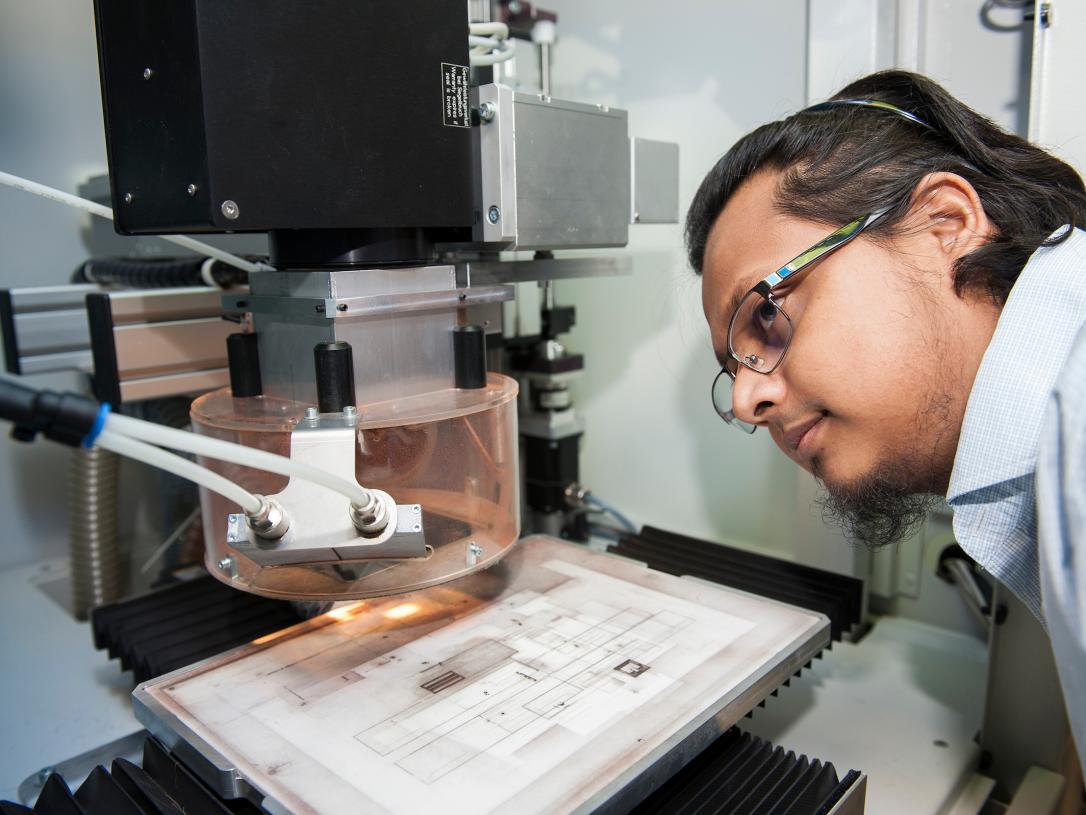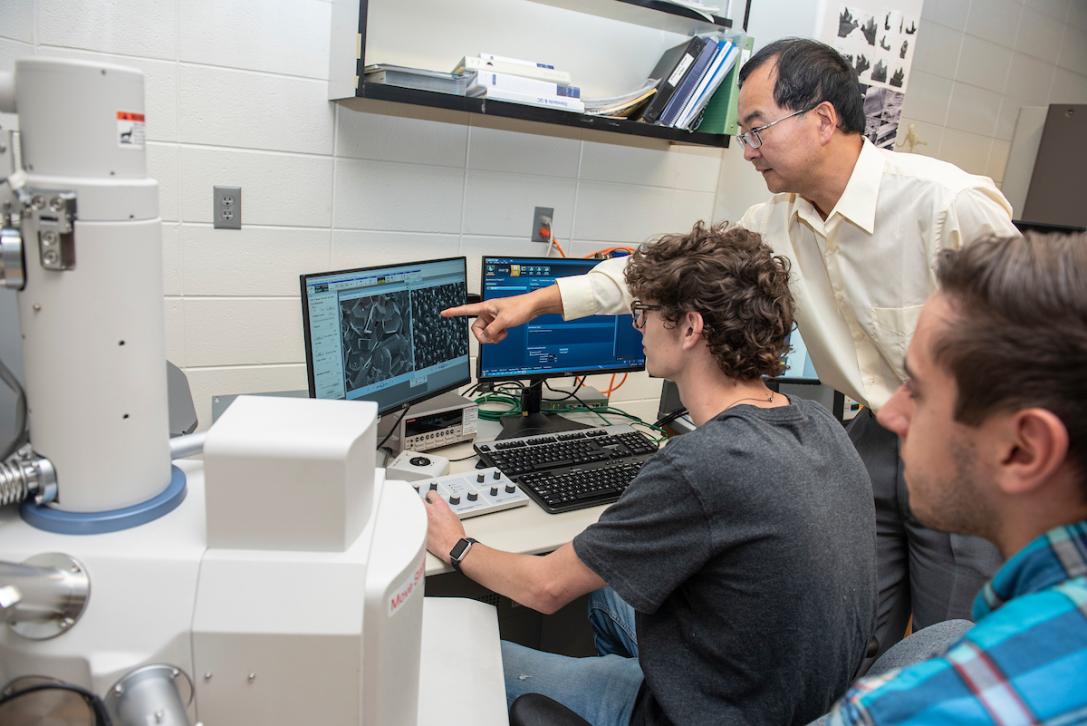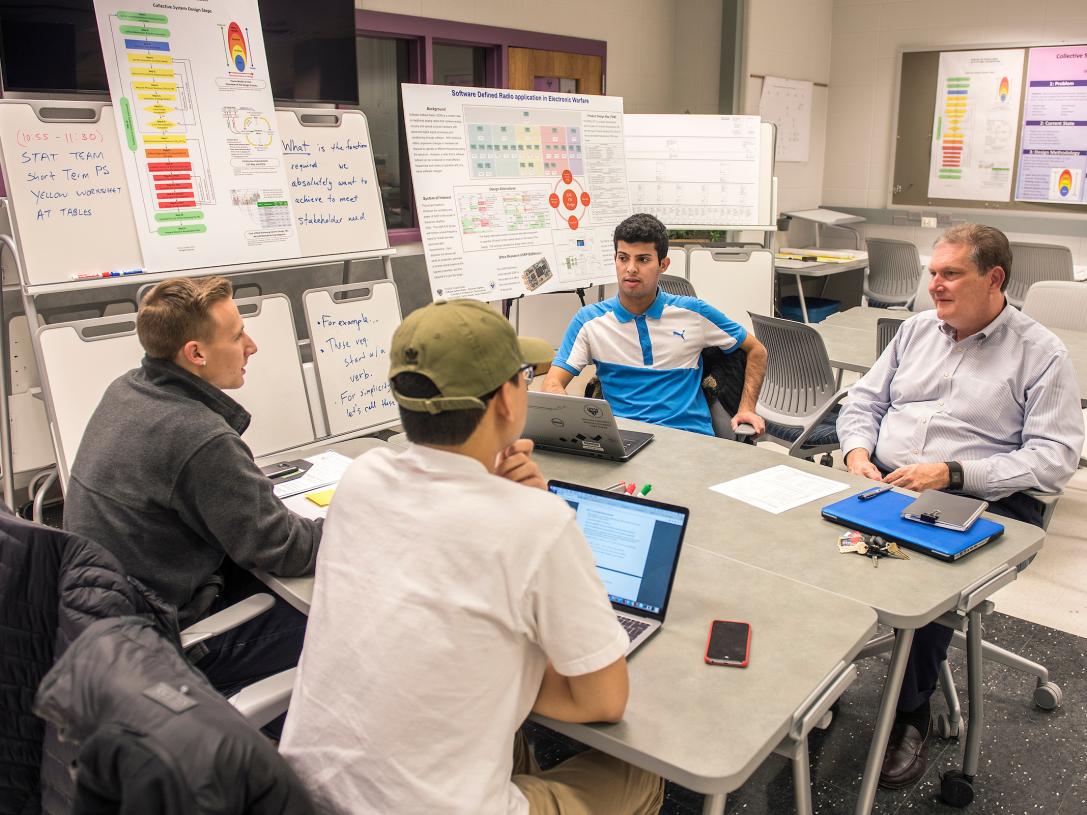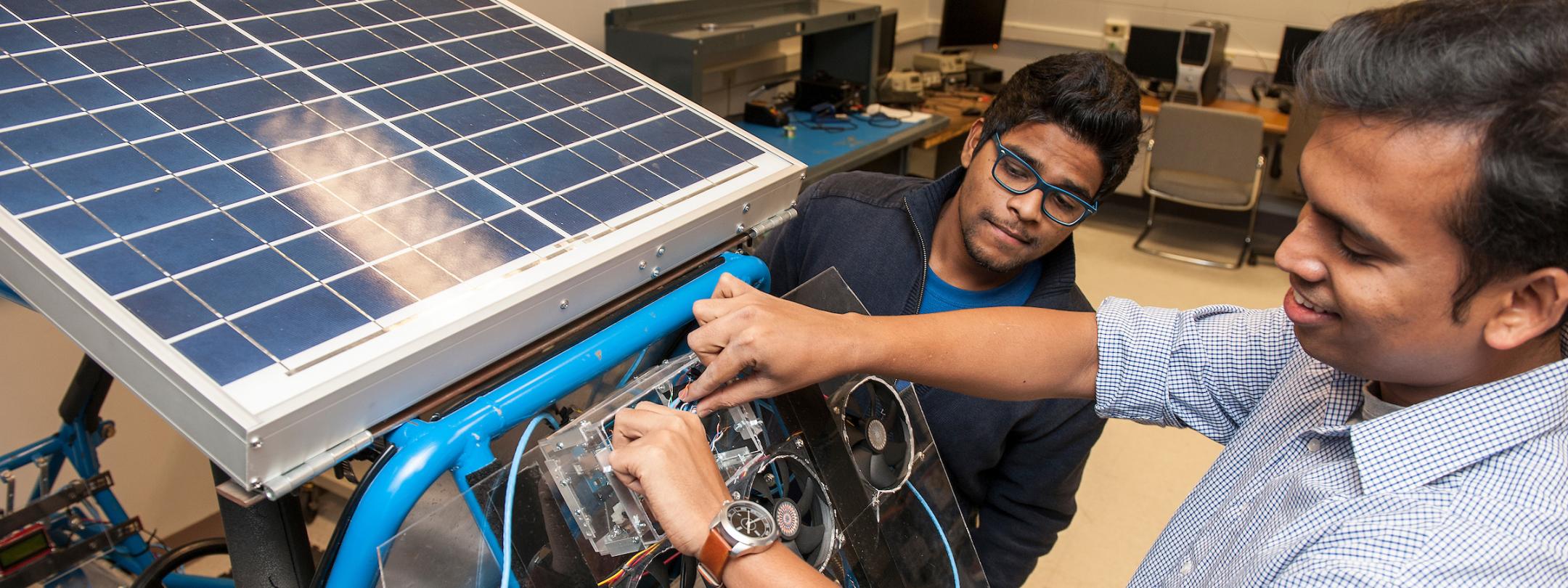
ELECTRICAL AND COMPUTER ENGINEERING PROGRAMS
It takes an innovative engineer to solve complex technical problems.
Our engineering programs prepare students to tackle the toughest engineering problems with the latest cutting-edge solutions.
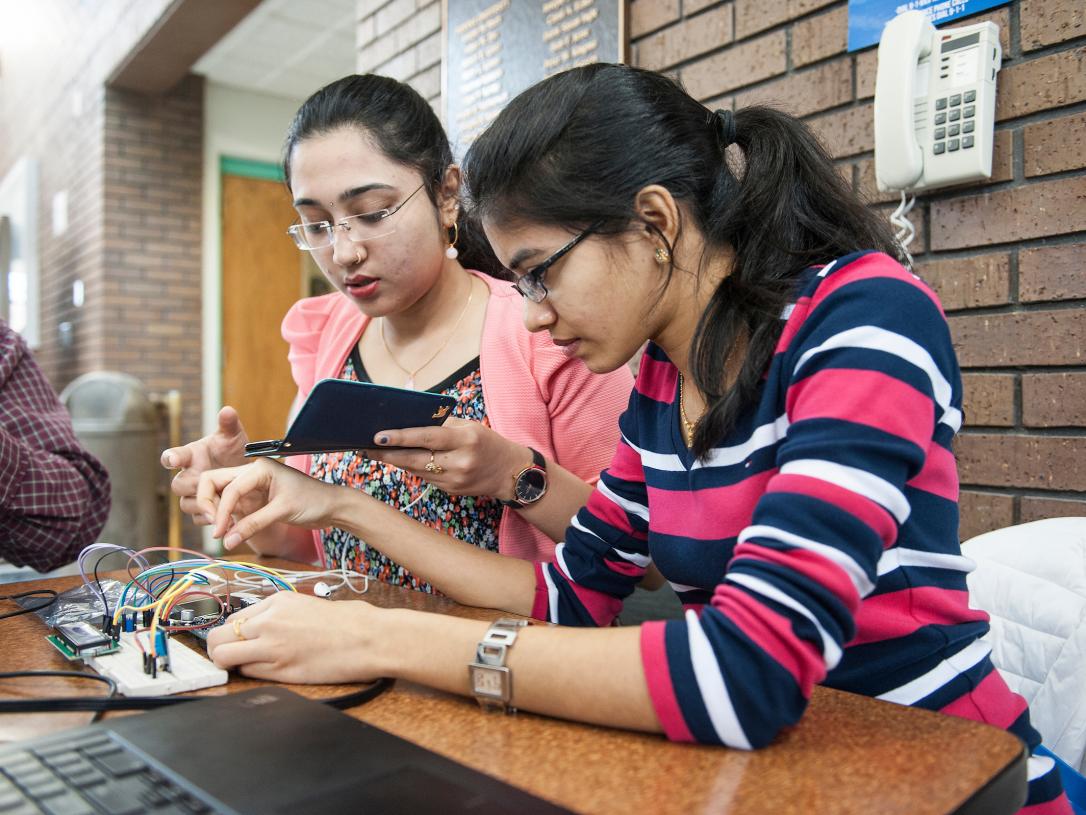
Computer Engineering (B.S.Cmp.E.)
Computer engineers are masters in the design and development of embedded computers used in aircrafts, cars, communication switching systems, biomedical instruments, industrial robots, and household appliances. We’re already heavily dependent on our computers and other similar devices, but this dependency is only going to grow as more and more everyday items come online—so we need more engineers to innovate and build solutions that improve our lives.
You’re encouraged to explore the possibility of a dual major in this and electrical engineering.

Program
Highlights
Program Highlights
- The ability to identify, formulate, and solve computer-engineering problems
- Experience with designing, computer systems, components, and processes
- The ability to apply knowledge in math, science, and engineering
- Support from the Mastodon community
- A prestigious Purdue degree
career and salary data
How far will you go?
General labor market and salary data are provided by Lightcast via O*NET and may not represent the outcomes experienced by Purdue Fort Wayne graduates in these programs. Purdue Fort Wayne graduates in these programs may earn salaries substantially different or less than the amounts listed. Salary and employment outcomes vary by geographic area, previous work experience, education, and opportunities for employment that are outside Purdue Fort Wayne’s control. Purdue Fort Wayne does not guarantee employment placement, salary level, or career advancement.
Accreditation
The Computer Engineering (B.S.) program is accredited by the Engineering Accreditation Commission of ABET, https://www.abet.org, under the General Criteria and the Program Criteria for Electrical, Computer, Communications, Telecommunication(s) and Similarly Named Engineering Programs.
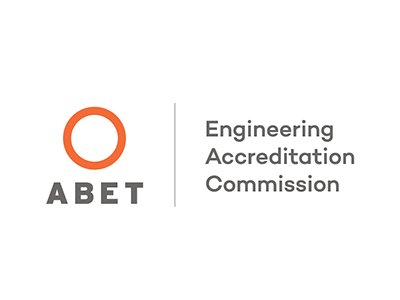
Student Learning Outcomes
Upon completion of this degree, students will be able to demonstrate the following learning outcomes:
- Identify, formulate, and solve complex engineering problems by applying principles of engineering, science, and mathematics
- Apply engineering design to produce solutions that meet specified needs with consideration of public health, safety, and welfare, as well as global, cultural, social, environmental, and economic factors
- Communicate effectively with a range of audiences
- Recognize ethical and professional responsibilities in engineering situations and make informed judgments, which must consider the impact of engineering solutions in global, economic, environmental, and societal contexts
- Function effectively on a team whose members together provide leadership, create a collaborative and inclusive environment, establish goals, plan tasks, and meet objectives
- Develop and conduct appropriate experimentation, analyze and interpret data, and use engineering judgment to draw conclusions
- Acquire and apply new knowledge as needed using appropriate learning strategies
- Advanced Automation and Robotic Systems Engineer
- Computer Application Engineer
- Computer Network Architect
- Computer Programmer
- Computer Systems Analyst
- Computer User Support Specialist
- Embedded Systems Engineer
- Software Engineer
- Systems Engineer
- Test Engineer
